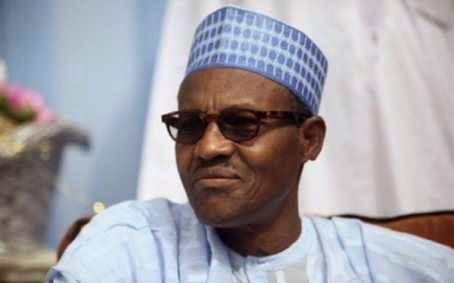12 things you should know about Buhari
Check out some amazing facts about Buhari.
1.Major-General Muhammadu Buhari is scheduled
to face incumbent President Goodluck Jonathan
in Nigeria’s presidential elections on February 14,
2015. Buhari is the candidate for the new All
Progressives Congress (APC) party, formed last
year as the result of a merger between four
opposition parties. Read on for an inside look at
the opposition candidate’s previous leadership
history, and his platform for the upcoming
election.
2.Buhari undertook military training in
three countries
Having received the bulk of his education in
Katsina, a town in northern Nigeria near the
Niger border, before beginning military training.
In addition to attending the military training
school and military college in Kaduna in
northwestern Nigeria, he also received training in
Great Britain (Officer’s Cadet School, Army
Mechanical Transport School), India (Defence
Services’ Staff College), and the United States
(United States Army War College).
3.He continues to defend his military
coup
In October 2005, he defended the military coup
he led in on December 31, 1983, when he
deposed the elected civilian government of Alhaji
Shehu Shagari, “The military came in when it
was absolutely necessary and the elected people
had failed the country.” He further said, “It is up
to the people. If you choose correct leadership,
there won’t be any need for the military regime.”
4. Over 500 officials were jailed during
Buhari’s 20-month stint as leader
As a part of his campaign against waste and
corruption, Buhari sent 500 politicians, officials,
and businessmen to prison. While some praised
his attempts to make Nigeria’s government more
accountable, others saw it as the tactics of a
repressive military ruler.
5. Buhari’s “War Against
Indiscipline” (WAI) stretched beyond
anti-corruption measures.
The campaign that became the cornerstone of
Buhari’s tenure as leader in the 1980s, Nigerians
were forced to form orderly queues at bus stops
(under the watchful eyes of soldiers wielding
whips, with orders to use them on anybody who
became unruly. Civil servants who were late for
work were forced to perform frog jumps as a
form of humiliation, and journalists were jailed
under restrictive decrees on press freedom.
6. He was imprisoned for 40 months
following his leadership
Buhari was deposed in a palace coup led by
General Ibrahim Babangida on August 27, 1985.
He was imprisoned for 40 months following the
coup, as the new leaders felt he had not made
the restoration of civilian rule a priority. He had
also lost much popular support, as people
protested the austerity measures, declining
health care services, and worsening economic conditions.
7. Buhari’s economic principles and
political ideology continue to be
referred to as Buharism
In his efforts to get Nigeria’s public finances
back in line, Buhari’s government curbed imports
into the country, refused to devalue the Naira,
curtailed oil theft, bartered illegally bunkered
crude oil for needful goods, and more. While
many praised the government’s successfulness
in reducing inflation, many of the changes also
resulted in widespread job losses and business
closures, lowering living standards for many.
7. He has run unsuccessfully for President
of Nigeria on three occasions
Buhari ran in the 2003, 2007, and 2011
presidential elections in Nigeria, but was
unsuccessful in his campaign on each count. In
2003, he lost to the People’s Democratic Party
nominee, President Olusegun Obasanjo, by a
margin of over 11 million votes – while there
were some allegations of fraud, courts found that
the level of proven electoral fraud was not
sufficient to have affected the outcome of the
election. He lost to Umaru Yar’Adua in 2007,
winning only 18% of the vote, and again in 2011
to current President Goodluck Jonathan, earning
just over 12 million votes, to Jonathan’s nearly
22.5 million.
8. He has been accused of having a hand
in post-election violence in 2011
The Nigerian human rights group, the Northern
Coalition for Democracy and Justice (NCDJ),
have asked the International Criminal Court
(ICC) to bring charges against Buhari for his
alleged role in the violence that followed the
2011 presidential election. 800 people were
killed, and churches and schools destroyed,
during the course of the three days of riots
following President Jonathan’s victory. The
NCDJ has accused Buhari’s party of
systematically targeting non-Buhari supporters in
instances of murder, torture, and rape, though
the All Progressives Congress party has denied
all claims.
9. Buhari is running on an anti-corruption
platform.
Continuing his commitment to stamping out
corruption, Buhari has focused his 2014
campaign on corruption measures, also pledging
to tackle growing insecurity in northern Nigeria
with the Islamic insurgency. But while many
agree with his position on corruption and see his
military expertise as the answer to ongoing
violence by the Boko Haram, many question his
ability to direct policy and the day-to-day of
political life.
10. A loss by Buhari would most likely lead
to much anger in the north
Due to Nigeria’s vastly diverse ethnic groups, an
unwritten agreement has ensured that power
rotates between the Muslim-majority north and
Christian south every two terms – an agreement
that was undercut with President Jonathan’s
primary victory in December 2014, leading to
dozens of ruling party legislators defecting and
losing the People’s Democratic Party’s majority
in the lower house of Parliament. Should
Jonathan win again in February 2015, it will
exacerbate the perception that power in the
country has become concentrated in the oil-rich
south.
11. Buhari has accused Jonathan of failing
to contain the Islamic uprising that has
killed thousands
Buhari has accused Jonathan and his
administration of incompetence, and of being too
weak to control the Islamic uprising in northern
Nigeria and the ongoing violence carried out by
the Boko Haram. He has perpetuated his
reputation as a disciplinarian and ruthless
military leader that would be able to contain the
Boko Haram’s activities.
12. He was one of two private African
individuals to be invited to Barack
Obama’s inauguration
Demonstrating the respect that Buhari
commands on the international level, he was one
of two private individuals invited by the White
House to Barack Obama’s inauguration
ceremony.
Leave a comment..
Source- afkinsider.com






Comments
Post a Comment